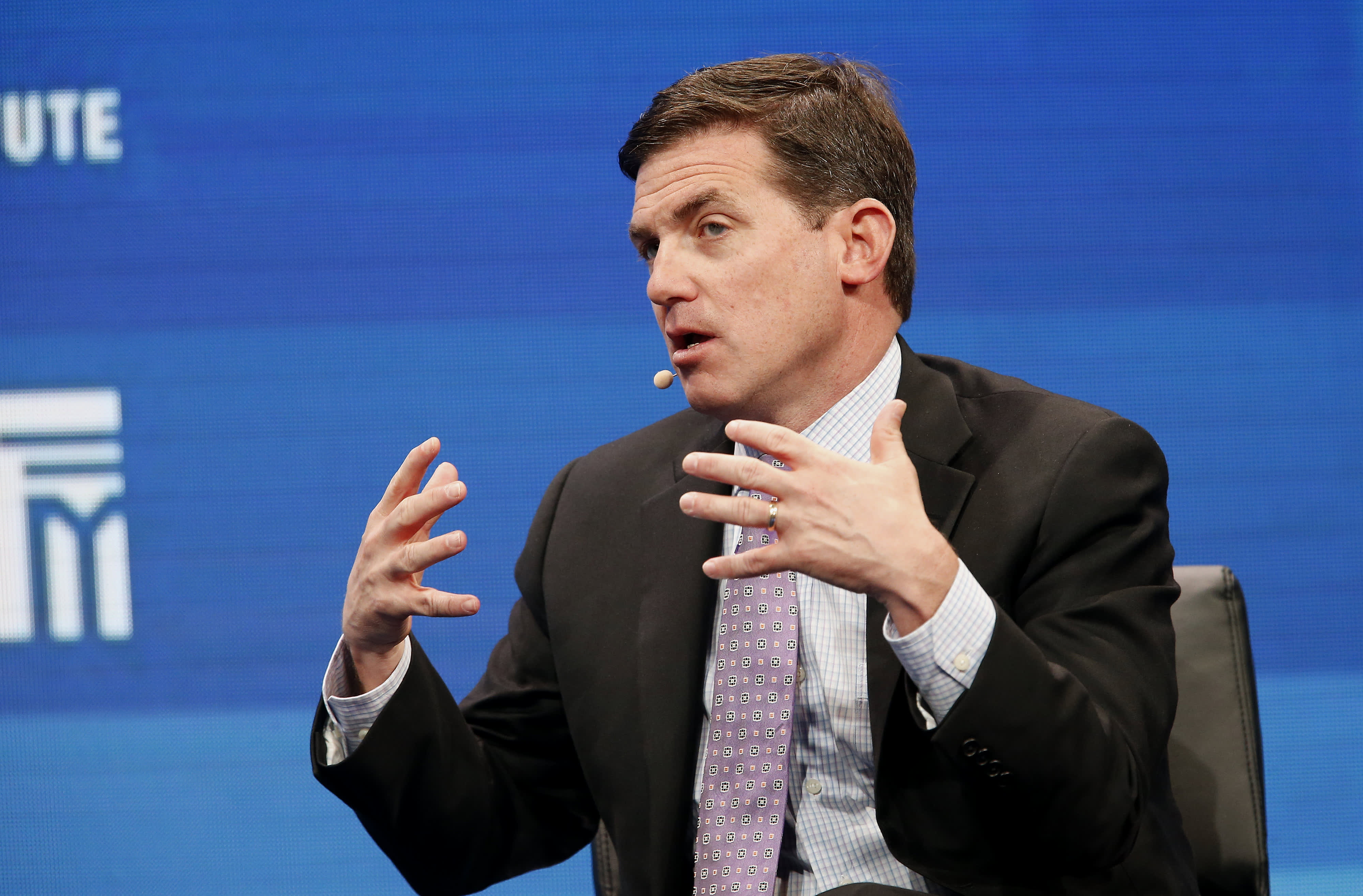WeWork's new co-CEOs have experience at tech giants like Amazon and AOL

Artie Minson, president and chief operating officer of WeWork, speaks during the annual Milken Institute Global Conference in Beverly Hills, May 4, 2016.
Patrick T. Fallon | Bloomberg | Getty Images
After a brutal six weeks of scrutiny following the release of WeWork's IPO prospectus, the co-working space provider announced on Tuesday that co-founder and principal shareholder Adam Neumann is stepping down as CEO. Neumann was the face and voice of the company, but his questionable leadership style coupled with the astronomical losses WeWork was racking up created what the CEO acknowledged was a "significant distraction" for the business.
The co-CEOs named to replace him, Artie Minson and Sebastian Gunningham, are veterans of the media and tech industries but have never held the top position at prior employers. They're now tasked with righting a 15,000-person company that recorded more than $800 million in revenue in the latest quarter and, according to Tuesday's press release, is generating over $4 billion in annualized sales, but lost over $600 million in the June quarter.
The IPO is now unlikely to take place this year, though it's still a possibility, according to people familiar with the matter who asked not to be named because the plans are confidential. WeWork said in a statement last week that it still planned to go public in 2019.
As WeWork reworks its story for Wall Street and determines what public market investors are willing to pay, here's what you need to know about Minson and Gunningham.
Artie Minson
A graduate of Georgetown University and Columbia Business School, Minson worked as an auditor for Ernst & Young after school before jumping over to Time Warner in 1998 as the internet bubble was blowing up. He took both AOL and Time Warner Cable public, and worked for Ted Leonsis and Tim Armstrong.
The Financial Times described him in a story last week as "an Irish Catholic from Queens" who "makes for a useful straight man" to Neumann's extravagance.
In 2000, he joined Rainbow Media Holdings, the entertainment company that became AMC Networks, where he eventually ran finance.
Four years later, he was hired as senior vice president of finance at AOL's broadband unit and worked his way up to becoming CFO in 2009, overseeing the spinoff from Time Warner. In 2013, he was named executive vice president of Time Warner Cable, and helped sell the business to Charter Communications.
Minson, who's now 48, joined WeWork as president and COO in June 2015, responsible for "scaling WeWork's operations and expanding the company's presence globally," the company said in a press release at the time. Reporting to Neumann, Minson's purview included operations, community, service, sales, expansion, business development as well as finance, legal, IT and human resources.
Minson turned his focus almost entirely to the finance department after WeWork promoted Jen Berrent to COO in 2017.
In an interview with CNBC in May, after WeWork reported a $264 million first-quarter loss, Minson urged investors to view losses as "investments," indicating that the company had tremendous growth opportunities in building out its co-working properties for an ever-expanding base of clients, or members.
When asked if he was trying to differentiate WeWork's losses from the capital ride-hailing companies Uber and Lyft spend on subsidies and discounts, Minson said, "that's a fair differentiator." Renting out work space is "a proven business model," he said. Memberships have climbed to 527,000 from 220,000 in the first quarter of 2018.
Sebastian Gunningham
Prior to joining WeWork as vice chairman last year, Gunningham, 57, spent over a decade at Amazon, ultimately running the company's marketplace business. He was one of CEO Jeff Bezos's closest advisors, and was part of his elite group of top lieutenants, known as the S-team, for most of his time there. He oversaw more than 30,000 people.
Before his career at Amazon, Gunningham, was a senior executive at Apple and Oracle, working closely with high profile CEOs Steve Jobs and Larry Ellison.
At WeWork he assumed the title of chief automation officer, which was first referenced in the company's updated S-1 filing. His work included injecting technology, machine learning and data science into the leasing process, from finding and developing real estate to filling the buildings.
The number of people reporting to Gunningham grew from zero at the beginning to over 1,000, according to a person familiar with the matter, who asked not to be named because the details are private.
Notably, Amazon's third-party marketplace adopted a lot of automation under his watch, though with very mixed results. The marketplace has been a huge driver of the company's growth in e-commerce, but the platform has been rife with loopholes, leading to an explosion of counterfeits and manipulative tactics by sellers.
Gunningham studied mathematical sciences at Stanford.
— CNBC's Alex Sherman and Deirdre Bosa contributed to this report.
WATCH: Here's what drove Softbank to push for WeWork CEO's removal
Read More
No comments